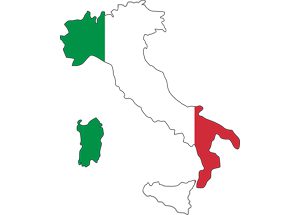Find out how to set up your company in Italy, a great location in the heart of Europe, with a flourishing market economy, a skilled workforce, and a renowned talent for design that can help your business thrive in a market.

Italy’s business environment has yielded positive outcomes in recent years, making it an attractive destination for entrepreneurs looking to establish a company and capitalize on the country’s market potential. Setting up a company in Italy provides an opportunity to tap into a market with a rich tradition of trading and a thriving market economy.
Strategically located at the heart of Europe, Italy offers access to a broad consumer base of approximately 550 million people through its membership in the European Union. As a foreign investor, you can benefit from Italy’s favorable business structure, which encourages and welcomes international investments. The country’s skilled workforce is an asset to any company, ensuring high-quality output and productivity.
This article aims to help you navigate the company setup process in Italy. So let’s get started:
Factors to Consider Before Setting up A Company in Italy
Before setting up a company in Italy, several factors must be considered to ensure a smooth and successful venture. Here are some key factors you should take into account:
Different Business Structures:
Different legal structures are available for businesses in Italy. Most for-profit businesses in Italy can be categorized into the following types:
- Sole Proprietorships: Also known as “ditta individuale,” this structure involves a single person owning and operating the business independently.
- Partnerships: Referred to as “associazione,” partnerships involve two or more individuals or entities joining together to run a business and share profits and liabilities.
- Corporations: Known as “società/corporazione/compagnia,” corporations are separate legal entities owned by shareholders who contribute capital and have limited liability.
When starting a business in Italy in 2023, choosing the appropriate legal structure is one of the initial steps. Here are some brief points to help you decide on various legal structures in Italy.
Sole Proprietorships:
- A person runs a business, and there’s no separation between personal and business earnings.
- The owner is personally responsible for all business debts.
Sole Trader (Ditta Individuale):
- Individuals sell goods or offer services as a business.
- The business name must include the person’s given name or surname.
- They can operate from a fixed location or as a mobile entrepreneur.
Partnerships:
- Similar to sole proprietorships but involve two or more partners.
- Partnerships are not separate legal entities and are not liable for corporation tax.
There are two types: General or Unlimited Partnership, where each partner is responsible for their share of ownership, and Limited Partnership (SAS), which has both general/unlimited partners and limited partners.
- General partners have unlimited liability, while limited partners are only liable for the money they invested.
- The business name must include the name of at least one general partner and indicate it’s a limited partnership as SAS.
Corporations:
• Corporations are businesses that exist as separate legal entities and pay corporate taxes.
• Owners of corporations have limited liability, which means they are not personally responsible for all the company’s debts.
Limited Liability Company (SRL):
• A Limited Liability Company (SRL) is a private corporation owned by one or more individuals.
• To start an SRL, you need to submit articles of association and have a minimum share capital of €1.
Simplified Limited Liability Company (SRLS):
• The Simplified Limited Liability Company (SRLS) promotes young entrepreneurship and has simpler requirements than a regular SRL.
• Instead of full articles of association, you only need deeds of incorporation to establish an SRLS. The minimum share capital required is €1, and it cannot go beyond €9,999.
Public Limited Company (SpA):
• Public Limited Companies (SpA) allow shares to be publicly bought and sold.
• Starting a SpA involves more legal requirements compared to an SRL, and a minimum share capital of €50,000 is needed.
Cooperative Society:
• A Cooperative Society is a limited company that focuses on benefiting its members and employees rather than generating profits for shareholders.
• To establish a Cooperative Society, a minimum of three shareholders are required, and each shareholder needs to contribute a minimum of €25 as share capital, with a maximum limit of €100,000.
Freelancer (Libero Professionista):
• Freelancers, also known as Libero Professionista, are self-employed individuals who offer services independently.
• They operate under their own name and cannot hire employees.
Legal and Regulatory Requirements:
Familiarize yourself with the legal and regulatory framework governing business activities in Italy. Ensure you understand the requirements for company registration, taxation, labor laws, and any industry-specific regulations. Consult with a local legal expert or business advisor to ensure compliance and avoid legal complications.
Market Analysis:

Conduct a thorough market analysis to understand the demand for your product or service in Italy. Evaluate the competition, target audience, market trends, and potential challenges. Determine if your business concept is viable and adaptable to the Italian market. This analysis will help you make informed decisions regarding pricing, marketing strategies, and overall business planning.
Financial Considerations:
Understand the financial implications of starting a company in Italy. Calculate the initial investment required, including costs for company registration, office space, equipment, and staffing. Familiarize yourself with the local tax system, such as corporate income tax, value-added tax (VAT), 22%, and social security contributions. Additionally, consider access to funding, banking facilities, and any available incentives or grants for entrepreneurs.
Local Culture and Language:

Italy has a unique cultural and business environment. Familiarize yourself with the local customs, business etiquette, and communication style. Italian is the primary language used in business interactions, so consider language barriers and the need for language support or translation services. Building solid relationships with local partners, suppliers, and customers will be crucial for your company’s success.
Infrastructure and Location:
Evaluate the infrastructure and location options that best suit your business needs. Consider factors such as proximity to target markets, availability of skilled labor, transportation links, and access to suppliers or distribution channels. Significant cities like Milan, Rome, and Turin are popular business hubs, but other regions may offer unique advantages depending on your industry.
How to Register a Company in Italy
Meet The Essential Regulatory Requirements:
a) Share Capital: Depending on your legal structure, you must provide the minimum required share capital.
b) Registered Office: You must have a registered office in Italy, the company’s legal address. It can be a physical or virtual office.
c) Tax Identification Number: Obtain your company’s Tax Identification Number (TIN). This is required for taxation purposes and can be obtained from the Italian Revenue Agency.
d) Business Permits and Licenses: Some industries may require specific permits or licenses. Research the regulations and requirements related to your business activities to ensure compliance.
Choosing a Company Name:
Selecting an appropriate company name is crucial. Ensure that another business still needs to register the name and complies with Italian naming conventions. The name should accurately represent your company’s activities and be distinctive.
Drafting the Articles of Association:
The Articles of Association outline the company’s internal regulations, including its purpose, share capital, organizational structure, and governance rules. It is recommended to consult a legal professional to draft this document correctly.
Registering the Company:
To register your company in Italy, you must submit the necessary documents to the local Chamber of Commerce or the Companies Register. Required documents typically include the Articles of Association, identification documents of shareholders and directors, proof of share capital, and other relevant forms.
Opening a Bank Account:

Once your company is registered, open a bank account in Italy. This account will be used to deposit the share capital for financial transactions. Prepare the necessary documentation to open the account, such as the company’s registration certificate, identification documents, and the Articles of Association.
Registering for Taxation:
Register your company for taxation purposes with the competent tax authorities. Obtain a VAT number if your business engages in taxable activities. Ensure compliance with tax obligations and keep proper accounting records. Here are some of the ordinary taxes in Italy you should know of:
| Tax Name | Description |
| Corporate Income Tax (IRES) | Corporate Income tax is a tax on the profits earned by Italian companies and permanent establishments of foreign entities. The standard rate is 24%. |
| Regional Tax on Productive Activities (IRAP) | A regional tax levied on the value of production and services rendered by a company. The rate varies by region and activity, ranging from 3.9% to 5.9%. |
| Value Added Tax (VAT) | A consumption tax levied on the sale of goods and services. There are various VAT rates, including 22%, 10%, and 5%, and exemptions for specific categories. |
| Social Security Contributions | Employers are required to contribute to social security funds for their employees. The rates vary depending on salary and social security category. |
Hiring Employees (if applicable):

Register with the National Social Security Institute (INPS) and the National Institute for Insurance against Accidents at Work (INAIL) if you plan to hire employees. Familiarize yourself with Italian labour laws and employment regulations.
Seeking Professional Assistance:
Setting up a company in Italy can be complex, especially if you need to familiarize yourself with the local legal and administrative procedures. Consider seeking professional assistance from experts who can guide you through the process and ensure compliance.









